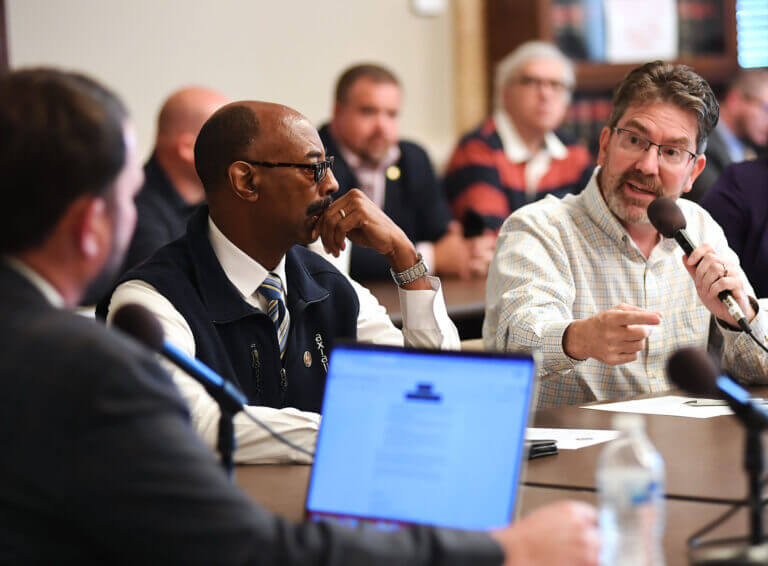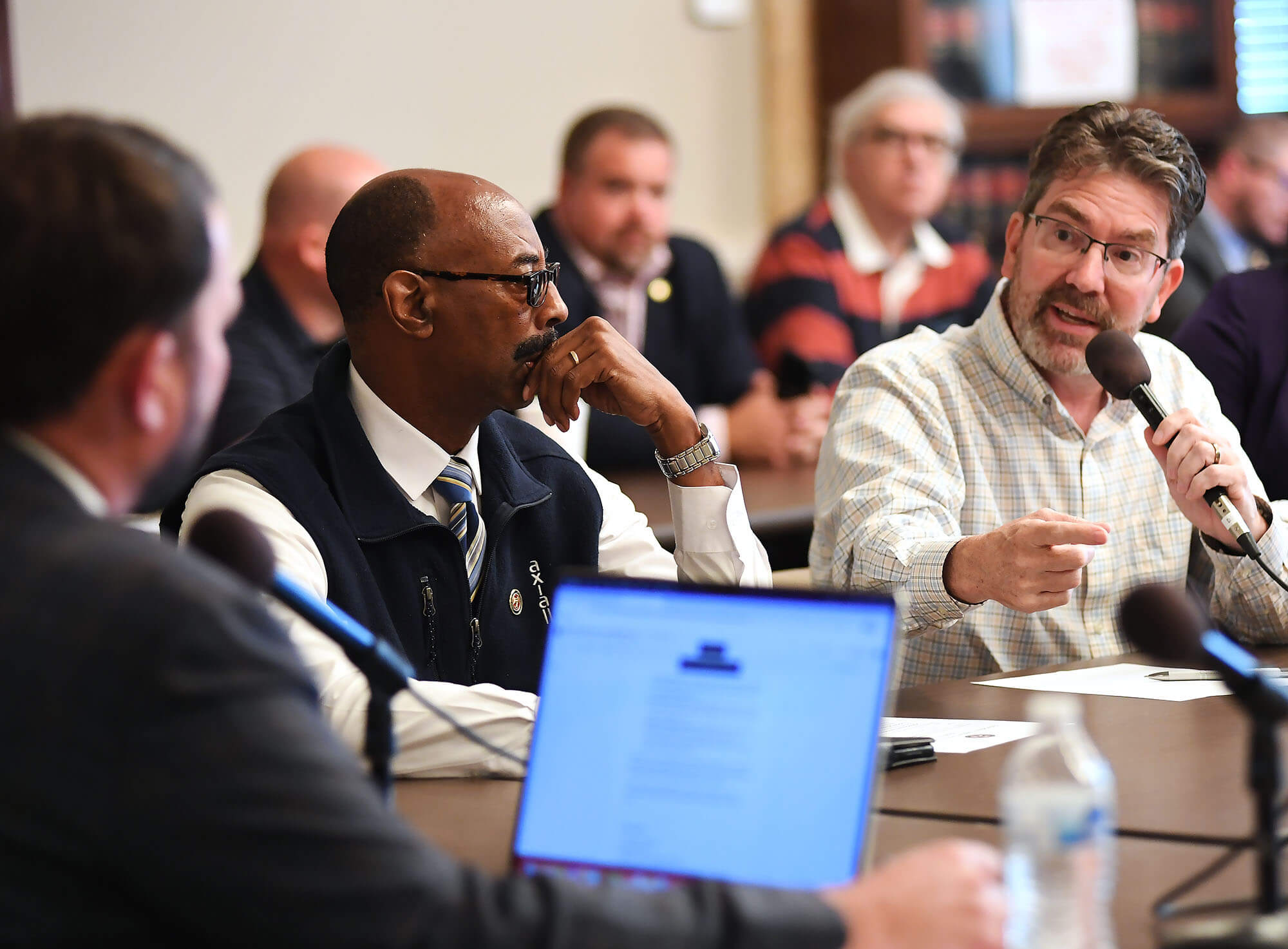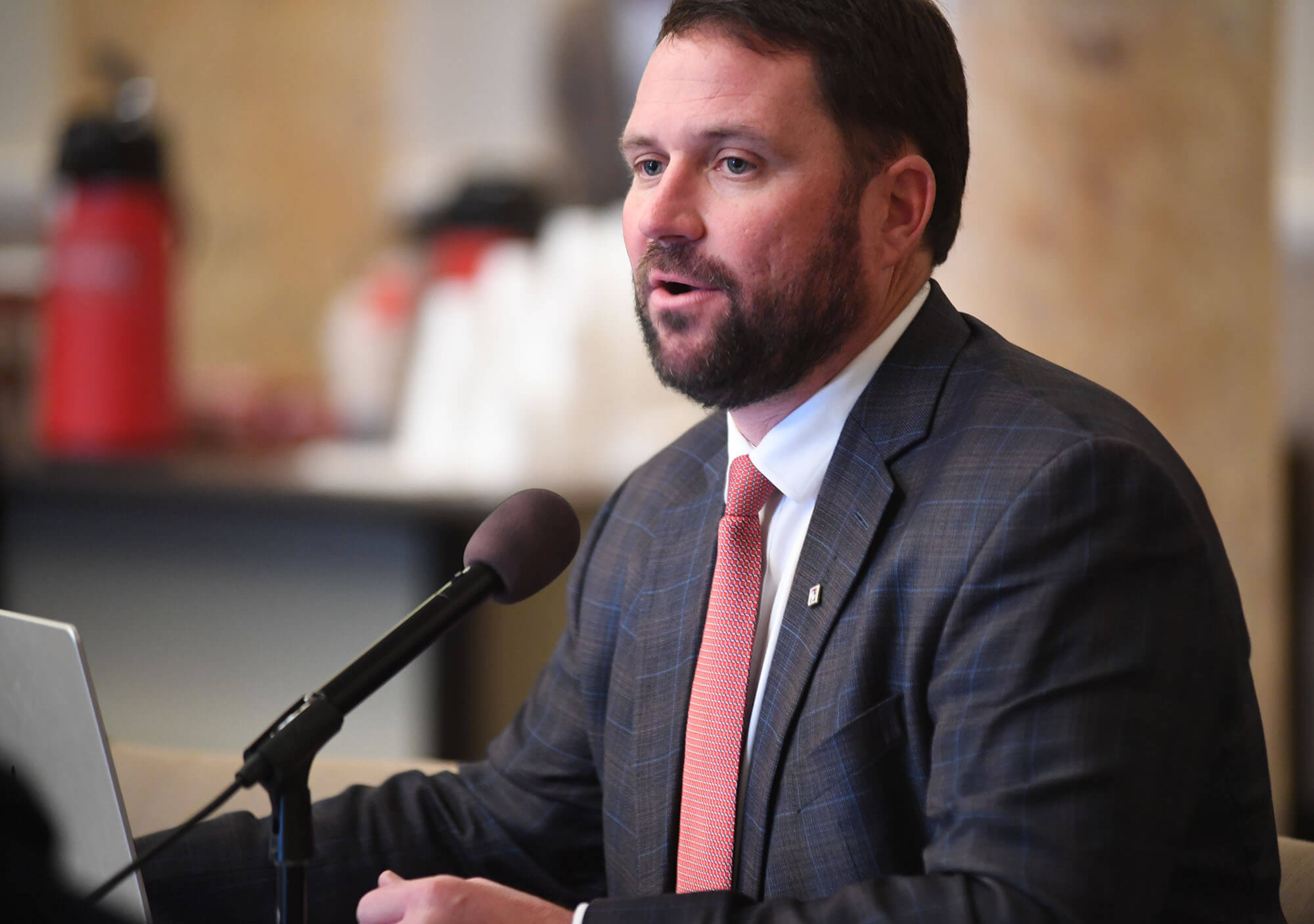

The latest meeting of the House committee studying school choice opened with a bold statement: Private schools could be convinced to support “school choice” and take public dollars — as long as there are no strings attached.
The hours-long hearing Thursday marked the third meeting for a group of representatives tasked with studying school choice. This refers to a number of policies that provide families more options, in and outside of the public schools system, including using public tax dollars for private schools. State legislative leaders, including House Speaker Jason White, have said expanding school choice will be a top issue in the coming legislative session.

The first speaker, Barrett Donahoe, executive director of the Mid-South Association of Independent Schools, said repeatedly at the meeting that private schools would not make their students take state assessments, nor would they change their faith-based curriculum or their ability to turn some students away, even if the schools were to take state money through school-choice programs.
It’s a popular argument among school-choice opponents — that voucher programs would allow private schools to accept tax dollars without being held to the same standards as public schools. But Donahoe did little to rebut it, instead doubling down on his stance.
When Rep. Greg Holloway, a Democrat from Hazlehurst, questioned his logic, Donahoe replied, “I don’t think we have to compromise anything. I think our schools do a good job.”
Many lawmakers were curious about accountability standards for private schools. Donahoe said that, mostly, private schools are held accountable by parents who pay tuition, typically between $7,200 and $7,500 a year.
Other representatives were less skeptical about private-school accountability.
“I don’t want to force our Christian schools to teach secular curriculum,” said Rep. Jansen Owen, a Republican from Poplarville and co-chair of the select committee, after the meeting. ”I don’t want the state’s involvement to infringe on that in any way.”
Owen and Donahoe suggested that private schools serve many low-income students, but data says otherwise. In 2016, just 8% of private school students lived in poor households, according to the National Center for Education Statistics.
Donahoe predicted that if school choice laws are passed, private schools wouldn’t get an influx of students, calling it a “false narrative” perpetuated by opponents of the choice policies.
It’s true that in other states, a majority of school-choice vouchers went to children who were already enrolled in private school, and school-choice programs don’t necessarily make private schools more accessible for low-income students or students with disabilities.
Next, officials from the Mississippi High School Athletics and Activities Association told lawmakers that expanded school-choice policies would “completely upset” the competitive balance of high school sports and activities.
“There’s no doubt in my mind we’re going to have movement based on academic needs, but I promise that the vast majority of our movement will be because of athletics,” said Chad Harrison, president of the association.
He encouraged lawmakers to consider allowing MHSAA to maintain its eligibility rules for students. That means if a student living in one district transfers into another district, they wouldn’t immediately be eligible to play sports.
Owen said the association’s concerns were addressed in a bill that failed last session, and they’d likely be able to find a compromise this year.
Mary Werner, a Mississippi Board of Education member, and Sam Duell from yes. every kid., a pro-school choice advocacy organization funded by the Koch brothers, concluded the meeting.
Werner, who said she wasn’t speaking to the committee on behalf of the board, suggested establishing a lottery would be the most equitable school-choice solution.
Duell presented a number of polls and surveys that showed parent satisfaction is higher when they get to make choices about their child’s education.
House Education Chairman Rob Roberson, a Republican from Starkville, said the select committee on school choice would likely meet again once or twice before the legislative session begins in January.
- ‘We can only go up from here’: Hope and apathy in Wilkinson County schools - February 28, 2026
- Community discussion grows around 24-hour child care in Hattiesburg - February 28, 2026
- Democrats say FEMA’s pause on long-term recovery projects is ‘just being mean’ - February 28, 2026